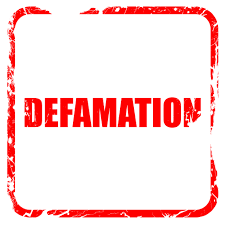 Short answer-absolutely. However, that doesn’t mean the lawsuit will be successful. We were just in the local news about just such an issue involving a dad and his frustration with a daycare center. He tried to resolve the issue with the owner but go nowhere. He then decided to go public with his complaints by posting an online review of the daycare center. Now, he’s getting sued for defamation and damaging the reputation of the business.
Short answer-absolutely. However, that doesn’t mean the lawsuit will be successful. We were just in the local news about just such an issue involving a dad and his frustration with a daycare center. He tried to resolve the issue with the owner but go nowhere. He then decided to go public with his complaints by posting an online review of the daycare center. Now, he’s getting sued for defamation and damaging the reputation of the business.
It’s a classic case that pits freedom of expression which is a right guaranteed by the Constitution and the tort (wrongful act) of defamation. Defamation is a broad statement that encompasses any statement that hurts another’s reputation. When the reputation-damaging words are in writing it is properly called libel. The first and best defense against any charge of defamation or libel is that the statement is in fact a truthful statement. If I write a post claiming John Doe is an adulterer and he in fact was caught with a woman who is not his wife, I can’t be sued for defamation or libel. It may be damaging to John Doe’s reputation but it is a truthful statement.
Because we value freedom of expression as an integral right, the bar for proving defamation is high. In addition to proving the statement is false, the accuser must also prove that actual malice was involved. “Actual malice” was defined in a Supreme Court case decided in 1988, Hustler v. Falwell. In that case, the court held that certain statements that would otherwise be defamatory were protected by the First Amendment of the United States Constitution. This meant that public officials could only win a defamation suit when the statement that was made wasn’t an honest mistake and was in fact published with the actual intent to harm the public figure. Actual malice only occurs when the person making the statement knew the statement was not true at the time the statement was made, or had reckless disregard for whether it was true or not.
